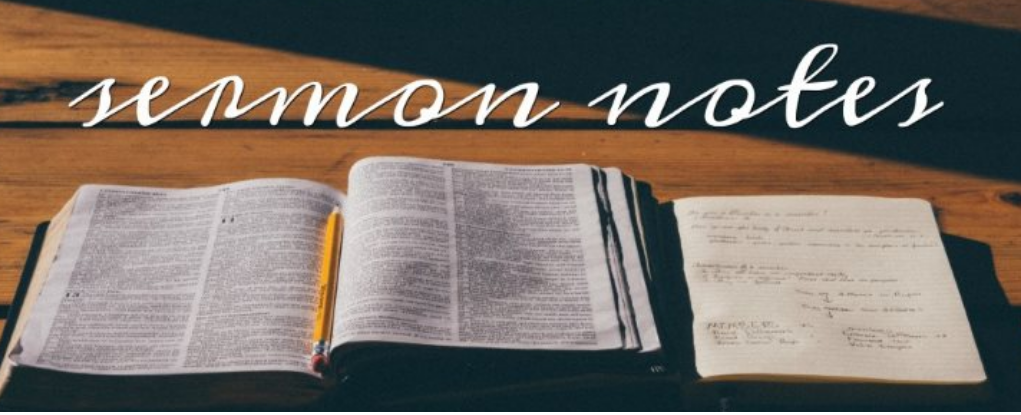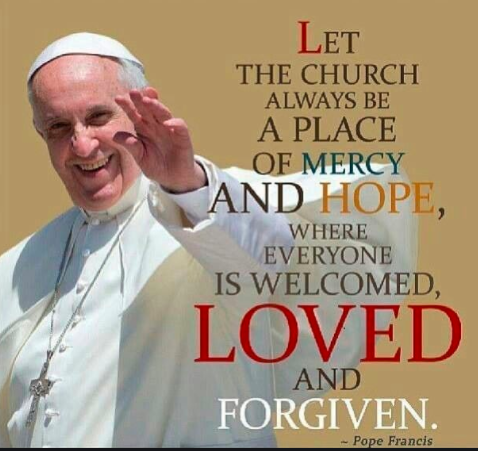Minute Meditation – Take Up the Word of God

“The road to Emmaus thus becomes a symbol of our journey of faith: the Scriptures and the Eucharist are the indispensable elements for encountering the Lord. We too often go to Sunday Mass with our worries, difficulties and disappointments…. Life sometimes wounds us and we go away feeling sad, towards our “Emmaus,” turning our backs on God’s plan. We distance ourselves from God. But the Liturgy of the Word welcomes us: Jesus explains the Scriptures to us and rekindles in our hearts the warmth of faith and hope, and in Communion he gives us strength.”—Pope Francis
The story of Emmaus carries a depth of feeling that resonates with us because we’ve all experienced some level of disappointed hopes and dreams in our lives. Dreams jobs turn to daily drudgery. Failed relationships leave us brokenhearted. Illness and injury break our bodies and sometimes our spirits. If we’re in the midst of such a time, the pope’s words can sound hollow to our ears. And yet, if we heed them, we will discover the deeper truth to which they point. The Word of God can speak a word of hope and promise to our despair. The Bread of Life can fill an emptiness, a hunger, that gnaws at us. Sometimes all we have to do is show up. We have to make that much of an effort. Often we go with no expectations, almost no hope. And God surprises us with the right word, the right thought, a much-needed smile or hug from someone. The message of Easter is that God shows up when we least expect it: a voice in the garden calling our name, a stranger on the road, a tap on the shoulder, breakfast on the beach or dinner after a long day at work. Sometimes the alleluias are quiet, but no less heartfelt for all that.
— from the book The Hope of Lent: Daily Reflections from Pope Francis,
by Diane M. Houdek
//Franciscan Media//
Morning Offering – Approach the Eucharistic Table as Often as Possible

“I urge you with all the strength of my soul to approach the Eucharistic Table as often as possible. Feed on this Bread of the Angels from which you will draw the strength to fight inner struggles.”— Blessed Pier Giorgio Frassati
//The Catholic Company//
Minute Meditation – What Temptation Teaches Us

What precisely is the meaning of the temptations in the desert to Jesus’s humanity? That would seem to be the meaning and application for us today. In short, I see the three temptations as the primal and universal temptations that all humans must face before they dare take on any kind of power—as Jesus is about to do. They are all temptations to the misuse of power for purposes less than God’s purpose. They are sequentially the misuse of practical everyday power, the misuse of religious power, and the misuse of political power. These are the constant tragedies that keep defeating humanity. Jesus passes all three tests, and thus “the devil left him” because he could not be used for lesser purposes. If you face such demons in yourself, God can and will use you mightily. Otherwise, you will, for sure, be used!
But let me point out something we almost always fail to notice. We can only be tempted to something that is good on some level, partially good, or good for some, or just good for us and not for others. Temptations are always about “good” things, or we could not be tempted: in these cases “bread,” “Scripture,” and “kingdoms in their magnificence.” Most people’s daily ethical choices are not between total good and total evil, but between various shades of good, a partial good that is wrongly perceived as an absolute good (because of the self as the central reference point), or even evil that disguises itself as good. These are what get us into trouble.
—from the book Wondrous Encounters: Scriptures for Lent
by Richard Rohr, OFM
Sermon Notes – The True Bread of Life

“The True Bread of Life”
Father Peter Fitzgibbons
August 4 – 5, 2018
Scripture: John 6: 24-35
24 When the crowd saw that neither Jesus nor his disciples were there, they themselves got into boats and came to Capernaum looking for Jesus. 25 And when they found him across the sea they said to him, “Rabbi, when did you get here?” 26 Jesus answered them and said, “Amen, amen, I say to you, you are looking for me not because you saw signs but because you ate the loaves and were filled. 27 Do not work for food that perishes but for the food that endures for eternal life,*which the Son of Man will give you. For on him the Father, God, has set his seal.” 28 So they said to him, “What can we do to accomplish the works of God?” 29 Jesus answered and said to them, “This is the work of God that you believe in the one he sent.” 30 So they said to him, “What sign can you do, that we may see and believe in you? What can you do? 31 Our ancestors ate manna in the desert, as it is written ‘He gave them bread from heaven to eat.’” 32 So Jesus said to them, “Amen, amen, I say to you, it was not Moses who gave the bread from heaven; my Father gives you the true bread from heaven. 33 For the bread of God is that which comes down from heaven and gives life to the world.” 34 So they said to him, “Sir, give us this bread always.” 35 Jesus said to them, “I am the bread of life; whoever comes to me will never hunger, and whoever believes in me will never thirst.
Prayer is when we bind ourselves to God. Receiving the Holy Eucharist is when we become one with Him in body and spirit. We die and rise with Christ at the alter.
Holy Communion is a “who” not a “what”…it is a “person” not a thing.” It is a supreme act of faith and love. Christ said “Whoever eats my flesh and drinks my blood remains in me and I in him” (John 6:56). You cannot stay home and read a book to accomplish that.
In a letter to the Romans, St. Ignatius of Antioch spoke of the real presence of Christ in the Eucharist: “I have no taste for corruptible food nor for the pleasures of this life. I desire the bread of God, which is the flesh of Jesus Christ, who was of the seed of David; and for drink I desire his blood, which is love incorruptible.”
From our first moments of life, we began to learn about the Eucharist. Our mothers’ cooking is the best, and through her cooking, she showed her love. She conveyed her love for us from our very first meal. If our parents can do that, so can God. After all, He made the world from nothing. So, why can’t the bread and water be transformed into His body and blood? Take Him at His word.
There has been no change in the teachings about how to receive the Eucharist. We are careful to take our medications according to our doctors’ instructions; otherwise they might be ineffective or worse. Likewise, we must prepare for Mass as prescribed by Christ through the apostles, so that we can receive the Holy Eucharist properly. We must get our minds and hearts focused on the Beloved. But, we tend to focus on ourselves…it’s all about us.
Rules of fasting (one hour before Mass):
- No eating
- No drinking coffee, tea, or soda (only water)
- No chewing gum
- No candies, breathe mints, lozenges, etc.
Arriving Late – Leaving early:
Participating in Mass is about our relationship with God. Very likely, we would be offended if we met a friend for dinner, they got there late, and then left as soon as they were finished eating without really taking the time to talk. In the same way, we are being disrespectful when we arrive late for Mass or leave early. Remember, Christ is present among us at Mass even while the last hymn is being sung. “For where two or three are gathered together in my name, there am I in the midst of them.” (Matthew 18:20). Also, keep in mind that the only person who left the Last Supper early was Judas.
It is such a great gift that He offers Himself to us every day, and even though we may not be Catholic or in a state of grace, we can receive Him spiritually. But, some people say that Mass is boring or that they don’t get anything out of it. Bishop Sheen said that those people are parasites in the body of Christ. He is present at the Mass…how much more exciting could it be?
How will you apply this message to your life? Will you prepare to receive the Holy Eucharist properly? Will you respect God by not arriving late to Mass or leaving early?


